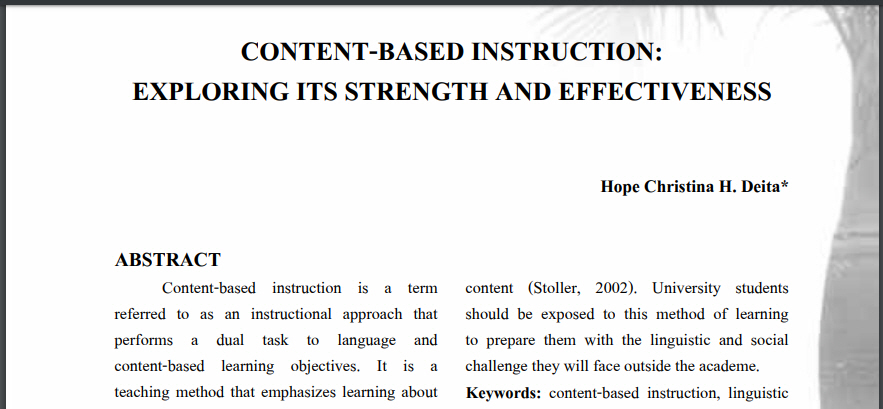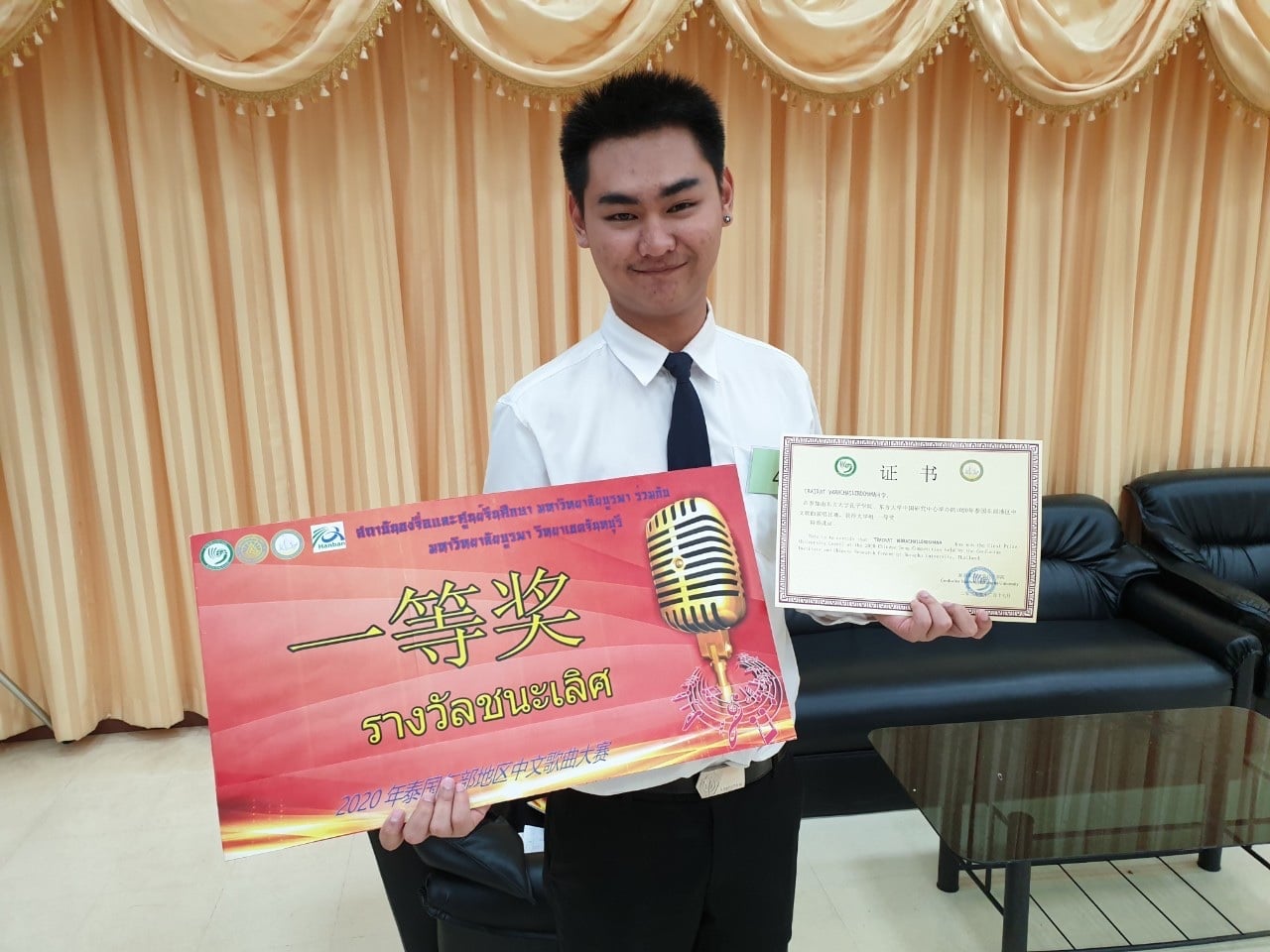บทความทางวิชาการ

Content-based Instruction: Exploring its Strength and Effectiveness
Hope Cristina H. Deita
Content-based instruction is a term referred to as an instructional approach that performs a dual task to language and content-based learning objectives. It is a teaching method that emphasizes learning about something rather than learning about language (Davies, 2003). CBI has been put into practice in diverse ways in response to students’ needs. Unlike other language instructions approaches that define primary content in terms of grammatical structure, communicative language functions, or language skills, in CBI, content refers to the use of non-language subject matters that is closely aligned with traditional school subjects, themes of interest to students or vocational and occupational areas. Most content-based settings have strong academic orientations, emphasizing the linguistic, cognitive and metacognitive skills as well as subject matters that students need to succeed in future educational endeavors.
Despite differences in emphases, what most content-based approach share is the assumption that content and language share a symbiotic relationship; that is, the learning of content contribute to the learning of language and mastery of language gives learners easier access to content (Stoller, 2002). University students should be exposed to this method of learning to prepare them with the linguistic and social challenge they will face outside the academe.
Keywords: content-based instruction, linguistic competence, content-area instruction.
The paper was published in Sripatum Chonburi Journal in 2015.



